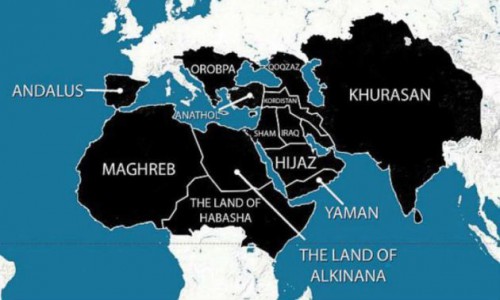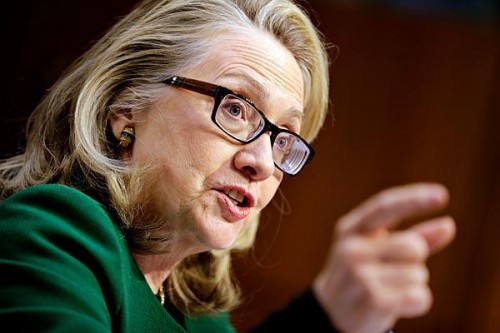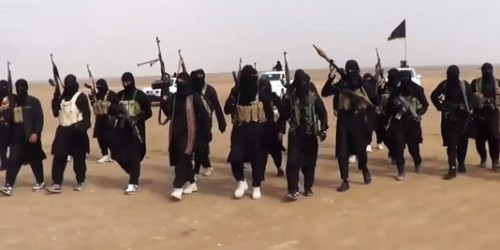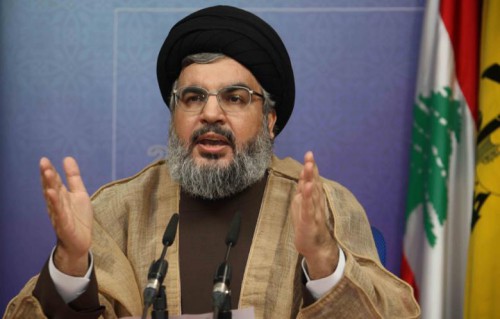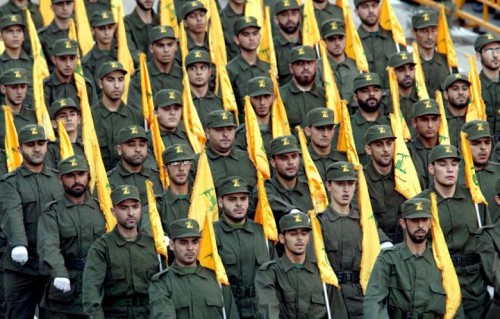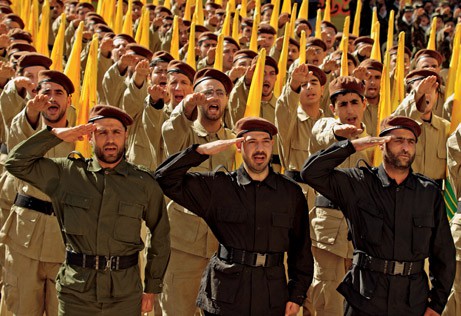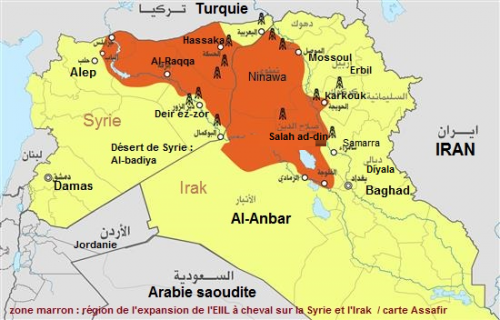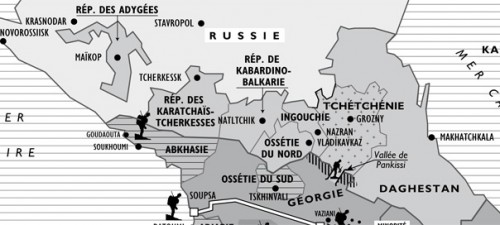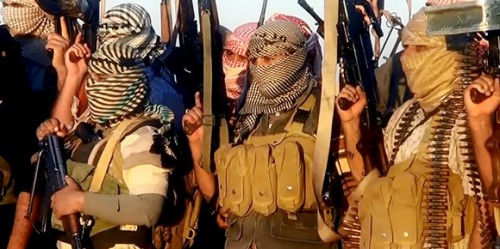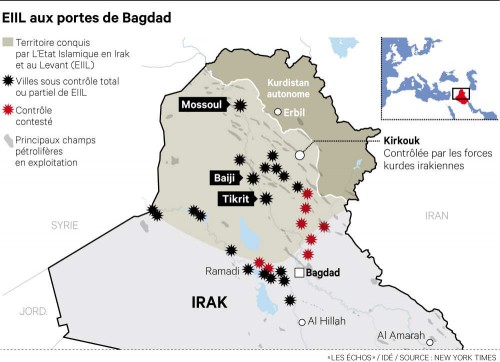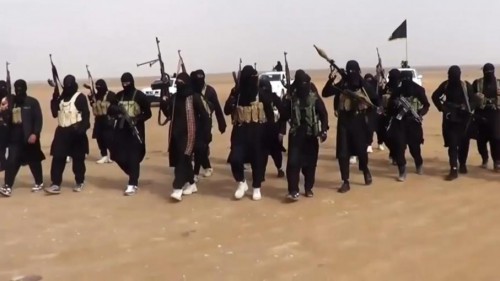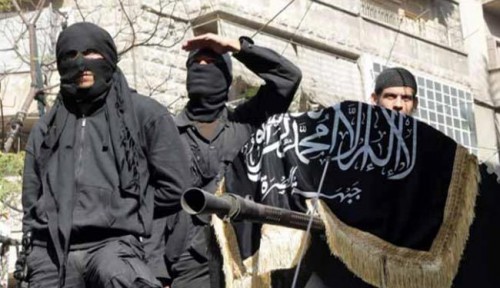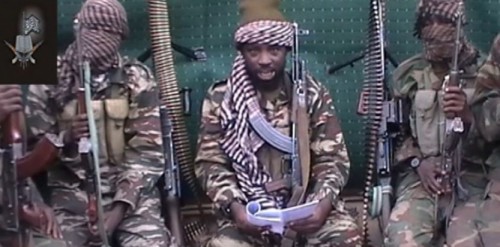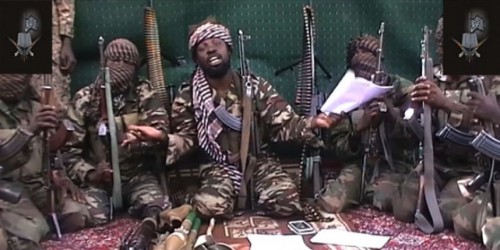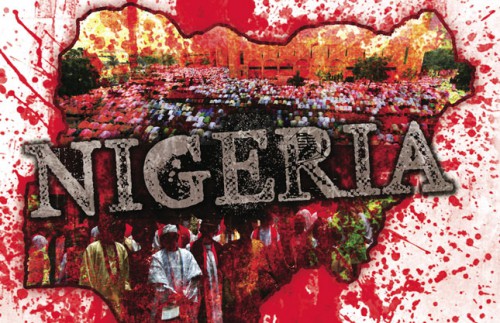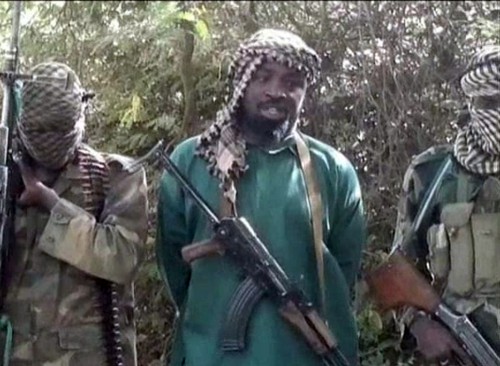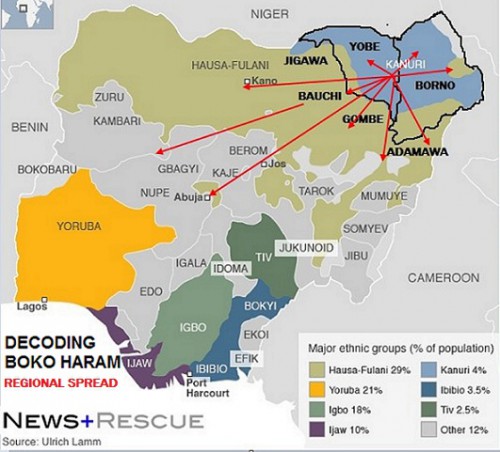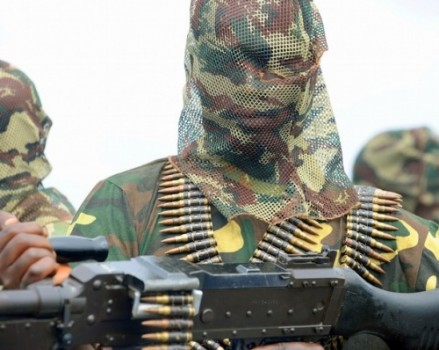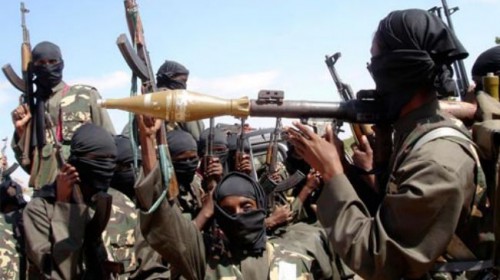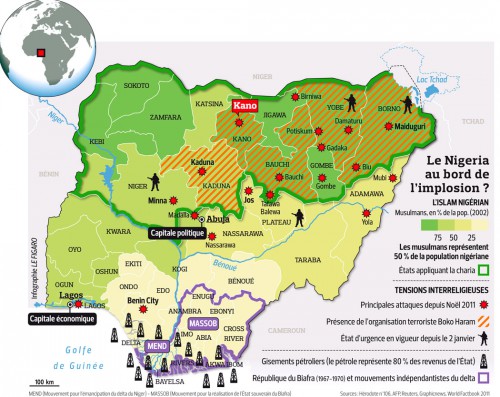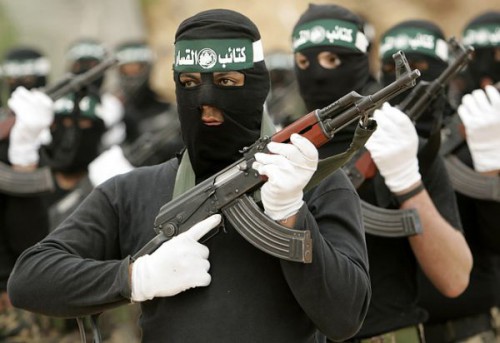Chechen separatism and Chechen wars (1994-1996 and 1999-2000) are part of the process of anti-Eurasian dissolution developed by Atlanticist strategists in the post- Soviet period. The Russian Federation is historically since Tsarist times a large-continental, integrating and tellurocratic state, an imperial power ... and a multi-ethnic state. In addition to the Slavic Russians, there are many other peoples living in the Russian Federation, and each enjoys a considerable degree of autonomy in their respective republic or oblast (region), with the absolute freedom to practice their religion or to use their language at an institutional level.
Turkic people like the Tatars or Bashkirs, Mongol peoples like the Tuvans or Yakut, Caucasian like Chechen or Ingush... Christians, Muslims , Buddhists or adherents of ancient shamanism. There is even a Jewish Oblast near the Chinese border, whose capital is Birobidzhan .
Shortly after the final collapse of the USSR in 1991, not still satisfied with having achieved the breakup of the Soviet republics, the international Atlanticist thalassocracratic conspirators also attempted to dismember the Russian Federation, starting with the destabilization of the Caucasus. While in the Balkans they were destroying Yugoslavia, and while Russia was being sacked by massive capital evasions to the "west" and was being vampirically weakened by cosmopolitan oligarchs that privatized large national industries and by the implementation of ultra-liberal reforms to establish parasitism, a separatist subversion began in Chechnya, which later should (according to the thalassocratic - globalist plans) then also extend to other republics, especially those with a Muslim majority, by the infiltration of Saudi Wahhabism. The goal was not only to dismantle the USSR, but also the Russian Federation.
The Chechen people
The Chechens are an ancient people located in the North Caucasus since at least 5000 years. The Caucasus has always been a region of great geostrategic importance because historically in this region three rivalizing Empires had their borders: Russia, Ottoman Turkey and Persia.
Being a mountain people (like the Basques in Spain, the Albanians in the Balkans or the Kurds in the Middle East) Chechens as well as other peoples of the North Caucasus (mainly Ingush and Dagestani) remained isolated for centuries and developed without foreign interference their particular idiosyncrasy, which includes a language of unknown origin without any apparent relationship with other languages spoken outside that area. They had contact with neighboring peoples such as the Alans (Ossetians), Georgians and with Byzantine culture and with the Terek Cossacks.
They were lately Islamized and kept syncretistically in Islam particularities of their ancestral religion. Therefore, the traditional Caucasian Islam, although formally adhering to the Sunni Hanafi school, incorporates ethnic elements that differentiate it from the mainstream Arab Sunnism.
Sufism is also extremely popular in the Caucasus. The two main tariqas (brotherhoods) are present: Naqshbandiyya is mostly in eastern Chechnya and Daghestan, while Qadiriyya has more adherents in western Chechnya and Ingushetia. One of the ritualistic differences between the two streams is the way to do the zikr; "Memory (of the name of Allah)" a mystical practice of pronouncing the shahada - "la illah has illa'Allah " - , ritually , in a rhythmic and repetitive way until reaching a state of trance; this practice is analogous to the recitation of mantras of Hinduism and Buddhism; or to the Hesychasm in Orthodox Christianity.
While the Naqshbandi Sufis practice the zikr sitting in a state of stillness, the qadiris move rhythmically and sometimes run in a circle around an imaginary axis. (The Black Stone of the Kaaba?). In Chechnya there are 5% of Christians, most of them of Cossack origin.
The Chechens call themselves "Vainakh " or "nokhchiy" , which means "our people". Their language belongs together with the Ingush and Dagestani , to the nakh (Ibero-Caucasian) languages. Throughout history they have used Georgian, Arabic, Latin and Cyrillic alphabets. Ethnically they are of Caucasoid type, and they have societal similarities to the Avars and Alans.
The Alans, ancestors of today's Ossetians, are an ethnic group of Iranian origin that partially moved westwards after the invasions of the Huns, reaching the Iberian Peninsula, after joining on the way Germanic tribes such as the Vandals and the Swabians. According to the Encyclop?dia Iranica, Alans contributed along with the Goths to name Catalonia (Got- Alania).
The Chechens have the haplogroup J2, mainly associated with the Mediterranean and the Fertile Crescent. They are genetically closer to the Basques or Britons than to the Slavs. In fact, they are by blood as close to the Basques as to the Ingush. Apparently, they are also associated with the mythical Cimmerians (equestrian nomads of the Caucasus and the Caspian Sea region, in which the writer Robert E. Howard found inspiration to create his character Conan the Barbarian), with the Sarmatians and the Assyrian-Hittite Kingdom of Urartu (cradle of the Armenian people).
After World War II, they were deported en masse to Kazakhstan and Kyrgyzstan on Beria's orders; on accusations of having collaborated with the Axis.
The Chechens are historically a martial society organized in teips (clans), with a significant agrarian culture and attachment to the land.
The social structure is made based on nekye (families) integrated into gar (branches), which form the teip (clans), organized in tukhum (web or union of clans).
They have a social code of honor: the nokhchallah (whose core values are morals, ethics, generosity, hospitality and protect women).
They all mythically descended from the same man, the Turpalo - Nokhchuo. The wolf is the national animal.
Religion
Religion is very much influenced by the Caucasian ethnic idiosyncrasies, so the traditional Chechen Islam syncretistically integrates elements of their ancestral spirituality.
Many Chechens and Ingush refer to God as Dela (instead of Allah), which is the supreme god of the Pantheon in the pre-Islamic period, comparable to the Greek Zeus or Wotan for the Germans.
There is a popular saying: "The Prophet Mohammad may have been an Arab, but God is a Chechen for sure".
The Wahhabism which was infiltrated during the '90s sought to "de- chechenize" Islam in Chechnya, imposing their demented satanic/globalist ideology of a Saudi-kind "universal caliphate". In addition, the emergence of Wahhabi separatism caused that secular nationalist idea was abandoned for the pan-Islamism (from "Republic of Ichkeria" to "Caucasus Emirate"). This caused many former secessionist militants (including Ahmad Kadyrov himself, father of Ramzan) to switch to the side of the Russian Federation after realizing what "independence" actually meant.
Post-Soviet separatism in the North Caucasus region
The idea of Chechen separatism (using subversive Islamic extremism and foreign mercenaries) was resurrected in the early '90s in the process of Soviet disintegration. The international plutocracy with the geopolitical goal of dominating the Eurasian Heartland, wanted to promote not only the dissolution of the tellurocratic, bi-continental and imperial power of the USSR, but also the dismemberment of the Russian Federation. Chechnya thus became the scene of a global battle between the two opposing geopolitical conceptions; corrosive globalism against the multipolarity of the large blocks; imperialism ("divide and conquer") against the Empire (federal autarky and integration).
In October 1991; Soviet ex - general and president of the Chechen Republic Dzhokhar Dudayev made a unilateral declaration of "independence", proclaiming the "Republic of Ichkeria ". His intention was to turn Chechnya into his personal feud, and to do so he was helped with covert CIA support.
For centuries, Chechens traditionally always devoted to the profession of soldier. The demobilization of the Red Army in the post- Soviet years led many to unemployment.
With Dudayev, who as a Soviet military man had never resided in the land of his ancestors, Chechnya became a haven for organized crime as it would later became Kosovo. The oligarchs were very involved in the illegal business with Chechnya, especially Boris Berezovsky. Dudayev came to threaten Russia with a terrorist campaign against its nuclear plants. Grozny's airport became a transit point for world heroin trade.
In the previous decade, Dudayev had participated in the war in Afghanistan against the Mujahideen, but paradoxically he and his successors would later use them in Chechnya. He was not an Islamist as Basayev and Umarov, but he lacked scruples and in order to realize his aspirations of "independence", he allied with Saudi Arabia (soon establishing in Chechnya a network of mercenaries through Prince Bandar) and Turkey (member country of NATO). He is the Izetbegovic or Thaci of the Caucasus.
He was an ally of the anti-Soviet Estonian nationalists (while his successor Aslan Maskhadov repressed them). In summer 1992, Dudayev made trips to Saudi Arabia and the UAE for support. Also to Turkey and Bosnia.
Berezovsky was an associate of Chechen gangsters. In 1993 he flew to Tel Aviv, and acquired Israeli citizenship without having to give up the Russian one.
General Alexander Lebed (who died in a mysterious "plane crash") stated that Berezovsky was responsible for the "peace negotiations" in Chechnya doing everything possible to make them fail.
Lebed : "After the signing of the peace accords of Khassaviurt [ ... ] Berezovsky came to see me and tried to intimidate me. When he realized that it was not possible to scare me, he simply said, "you have spoiled an amazing business. Everything was going so well. Were they killing each other? So what? They always have and will continue to do so anyway."
Salman Raduyev was a friend of Berezovsky. Ramzan Kadyrov declared years later that Berezovsky financed terrorists back in 1996 and 1997: "He could not afford to just give them the money, so (Berezovsky) invented the following mechanism: He asked (Raduyev and Basayev ) to kidnap people and he would pay the ransom: "I will receive good publicity and you will have the money". (Source: http://rt.com/politics/berezovsky-financed-terrorists-by-paying-ransoms-chechen-prez/)
Looter oligarchs like Berezovsky or Gusinsky, in those turbulent years, contributed to emphasize the precariousness of the Russian people and to spread misery; these plutocrats also collaborated with international high finance that sought to dissolve not only the USSR but also the Russian Federation.
Geoenergetic Question: There are not the natural resources of Chechnya which matters most to the Russians, but the network of oil pipelines in the Caspian sea. USrael steals oil from Russia through Georgia and Azerbaijan. Baku- Novorossiysk.
In 1993 Dudayev announced that Chechen language would stop using the Cyrillic alphabet and would begin to use the Latin one; also they stopped teaching Russian in schools.
Meanwhile, Chechen political groups from within the republic opposed his regime and decided to ally with Russia.
The first war to regain Chechnya took place between 1994 and 1996, ending with a ceasefire. Dudayev died in 1996 after being hit by a missile during the war.
Aslan Maskhadov came to power in 1997, he wanted to maintain the "sovereignty" and continue pressuring Moscow (which had enough economic problems on their own because of the parasitical oligarchs) to rebuild the country. Russia continued to send money for the rehabilitation of the republic, to build schools and hospitals, but most of the money was taken by the separatist authorities and the warlords who keep the money for themselves.
Formally, "Ichkeria" was still part of Russia, and enjoyed government subsidies and participation in the Russian financial system (their "independence " was UNILATERAL), but it did not contribute at all to the Federation. It was beyond the control of the customs bodies and of the Russian security forces. In a concession to the Islamists, Maskhadov decreed the imposition of Sharia in 1999. Chechnya began increasingly to become a Caucasian version of Taliban Afghanistan.
The second war began in July 1999 with the invasion launched by Basayev and Arab mercenary Khattab against Dagestan from Chechnya; with the complicity of Maskhadov, with the scope of also separating Dagestan from Russia and integrate it into the "Republic of Ichkeria" as a potential " Islamic emirate". In September, terrorist acts in Moscow apartment caused over 300 deaths.
Proponents of the conspiranoic theory that the bombs in the apartment were a "false flag" of the FSB, have connections with Berezovsky (Litvinenko, Kasparov, etc). The most rabid Zionist neocon hawks in Washington are also adherents of this real "conspiracy theory". A major case of PROJECTION (attributing to the crimes they themselves commit or the own ways of doing things to the adversary) is seen here: The same ones who affirm that after the bombings in Moscow apartments were Russian secret services to have an excuse to intervene in Chechnya, are the ones defending tooth and nail the "official version" of 9/11.
The Russian intervention in Chechnya in 1999 drew criticism (and even economic sanctions) from Washington, accusing Moscow of "violating human rights", urging the Russian government to "engage in dialogue" with the "moderate" Maskhadov. The State Department of the U.S. received in January 2000 none other than Ilyas Akhmadov, cabinet member of the separatist regime of "Ichkeria". Meanwhile, oligarch Vladimir Gusinsky (like Berezovsky also an Israeli citizen), owner of Media -Most and NTV channel, performed in Russia itself a media campaign in line with the Atlanticist view, attacking the "barbarism" of the Russian Army and the "war crimes" (obviously only the ones of the pro - Federation forces, systematically ignoring the atrocities perpetrated by the Chechen "rebels" - In Chechnya, as today in Syria, there were also two types of "combatants" : the "extremists" of "Al Qaeda" (of which nobody was still speaking in the West, because this was before 9/11) and the "moderate" Maskhadov (analogous to current members of the "FSA").
Instead, the pro-Federation Chechens (which were increasing in numbers) were systematically ignored by the media (both Western and "Russian" - ie oligarchic - media, as the aforementioned Media-Most of Gusinsky). It was thus intended to give the public the wrong perception that it was a conflict of "Russians against Chechens" (of "evil imperialist Russians against poor Chechens who just wanted freedom"); when in fact it was a geopolitical conflict between supporters of the Federation and sympathizers of secessionism (among them less and less civilians and increasingly more militant Wahhabis - many of them foreigners - as well as organized crime figures and, of course, those who always benefit from the "divide and conquer".
Political analyst F. William Engdahl said that if Russia had not intervened in Chechnya between 1999 and 2000; the US would have had the excuse after the attacks of 9/11 and the invasion of Afghanistan, to directly interfere in the North Caucasus (ie in the Russian Federation) alleging that the region could serve as a refuge to Bin Laden and Taliban leaders, after "not having found" them in Afghanistan.
Raduyev mantained that Dudayev (officially dead since 1996) was still alive, and gave orders for the "liberation of the Caucasus" from a secret NATO base in Turkey ( ! ). In 1999 Raduyev , whom the effects of an explosion had deformed the face, went to get plastic surgery to Germany (!) He got titanium implants, so they nicknamed him "Titanic" and "Michael Jackson". In 2000 he tried to assassinate Georgian President Eduard Shevardnadze, who a few years later was to be overthrowed by one of those colored revolutions of the post -Soviet space, and replaced with the more “cooperative” puppet Saakashvili.
In retaliation for the terrorist bombing of the Moscow apartments in September 1999, air strikes were carried out by Russia against the regime of "Ichkeria", and ground attacks in October. The Russian reaction, coordinated by Putin, was much better planned and executed than in the first war in 1994.
Since 2000, the separatists had access to sophisticated radars and anti-aircraft batteries (made in USA) . Georgia 's border with Chechnya was used to smuggle weapons and mercenaries for the CIA (perhaps the attempt to assassinate Shevardnadze in 2000 had something to do with his refusal or resistance to it?). In Taliban Afghanistan (with which "Ichkeria" had optimal contacts) there were trained terrorists for the " jihad" in Chechnya , with the help of the Pakistani ISI. Among them was Basayev, possible CIA agent.
Individuals like Zbigniew Brzezinski and Richard Pipes cynically criticed the "invasion" and "genocidal atrocities" supposedly committed by Russia in Chechnya (while, at the same time, the U.S. was planning and executing a TRUE invasion, that of Iraq) , and demanded through the "American Comitee for Peace in Chechnya " (ACPC ) and other globalist organizations such as the "National Endowment for Democracy" (NED ) that Moscow should "negotiate" with the "moderate" Maskhadov government, even to the point of proposing to Chechnya "formal independence" under international supervision ( ! ) - see for example the article "Give Chechens a land of Their Own" (The New York Times, 9.9.2004 ) or "The Great Chessboard" (p. 88-89) of Z. Brzezinski.
In 2005, the U.S. television network ABC aired an interview with the head of the Chechen terrorists Shamil Basayev, one of the main responsibles for the slaughter of children in school in Beslan (North Ossetia) in September 2004. When the Russian Ministry of Foreign Affairs expressed outrage about it, the US State Department said that the TV channel is backed by the "freedom of expression".
On March 7, 2006 a group of prominent characters of high finance and Western politics published an open letter in the media where they continued the anti-Russian hysteria, comparing the take of Grozny with Hitler's attack against Warsaw in 1944, condemning the "neo -colonial" behavior of Russia and urging to take "drastic measures" against the Russian government. The letter was entitled "End the Silence over Chechnya" and was signed, among others, by none other than the founder of the Open Society Institute George Soros, the French Zionist Andre Glucksmann or Saudi Prince Hassan Bin Talal .
At events like the G-8 conference in St. Petersburg in June 2006 or during the parliamentary elections of 2007, the Atlanticist lobby continued hostile anti-Russian statements and media campaigns through individuals like John McCain, Tom Lantos (one of the largest media agitators for the first invasion of Iraq in 1991, propagandist of the incubators-myth) or Ileana Rose-Lethinen, who accused Putin of "authoritarianism" , "corruption", "mysterious explosions in Moscow apartments " and "invasion of Chechnya".
Afghan Taliban recognized Ichkeria in 2000; also "Ukrainian nationalists" and Poland. Because of the Ukrainian conflict, it is now common knowledge that criminals of "Pravy Sektor" ( UNA / UNSO ) had ( and have) excellent connections with Wahhabi terrorists in the Caucasus; and that there even were Ukrainian fighters on the side of Dudayev?s separatists, such as Alexander Muzichko a.k.a. Sashko Biliy, while Pravy Sektor?s chief Dimitri Yarosh called for help from Doku Umarov. Ukrainian chauvinists are also fiercely anti -Serb ; recently it came to light that Croatian war criminals "coincidentally" acquitted at The Hague like Ante Gotovina have traveled to western Ukraine to train and advise the anti - Russian militias. (See: http://theremustbejustice.wordpress.com/2014/03/06/the-bloody-croatian-generals-acquitted-by-the-hague-tribunal-took-over-the-ukrainian-land-forces/ )
In June 2000, Putin appointed former chief mufti Ahmad Kadyrov head of the Chechen government, and the reconstruction of the Republic from the ashes began. Kadyrov had initially supported the secessionists in the early '90s, but stopped after discovering how talassocracy was instrumentalizing Chechen nationalism, and especially seeing the rise of insane Saudi Wahhabi ideology and the havoc it caused in the Caucasus - also after realizing that protecting ethnic idiosyncrasy and self-determination of the Chechen people were not at all incompatible with integration into the Russian Federation, a great continental power composed of diverse peoples and that had nothing to do with the oppression of the Soviet past. What was bad in the USSR has been reincarnated in (or transferred to) the "EU" and not to the New Russia - that's what many "nationalist" (especially Ukrainians, but also Baltic and Western) do not understand.
Following the takeover of Kadyrov and the beginning of the rebuilding of the country, about 7,000 former separatist passed to the federal side.
In 2003 it was approved a new Chechen constitution after a referendum; which gave the Republic a significant degree of autonomy.
In March 2004 Ahmad Kadyrov was murdered; the "moderate" Maskhadov said "he got what he deserved". Alu Alkhanov succeeded him as the head of the Chechen government, and the following year, in December 2005, he was replaced by Kadyrov 's son Ramzan, who continues to lead the Republic until today.
Beslan massacre
September 2004: Beslan, North Ossetia , 1100 hostages, 331 killed (186 of them children). The terrorists were drug-addicts used by Basayev. ( Basayev fought on the side of the Azeris against Armenians during the Nagorno-Karabakh conflict in 92 , where he met Khattab. From that time - which coincides with the visit of Dudayev to Saudi Arabia - Wahhabism began to infiltrate in Chechnya . According to LITVINENKO and Berezovsky ( big " credibility ..."!) Basayev was conspiring with Putin against "moderate" Maskhadov - again we see the PROJECTION scheme, as what happened in reality was Bin Laden working with USA secret services.
By the way, Basayev 's brother, Shirvani, lives in Erdogan's Turkey.
Another Arab mercenary like Khattab is Muhannad, trained in the U.S., brought Wahhabism to the Kists of Pankisi (Chechens in Georgia) .
Spokesman of the separatist Ichkeria government Ahmed Zakayev, exiled in London (!), said that Basayev "does not represent the Chechen cause" and that he is "an agent of Moscow trying to discredit it". But at the same time, despite the attack in Beslan, Zakayev named Basayev "Deputy Minister" in 2005.
The "moderates " (Maskhadov) and the "extremists" (Basayev), as in Syria the "moderate FSA" and "extremist Al Qaeda / ISIS" etc. - the same false dichotomy as "Democrats vs. Republicans " in the USA .
In 2007; Anzor Astemirov (who studied Islamic theology in Saudi Arabia) officially requested U.S. help against "Russian aggression". Thereafter, "rebel" websites took out the phrase that read that Western countries were enemies of the "Caucasus Emirate".
Maskhadov
On March 8, 2005 Maskhadov was liquidated in a Russian special operation (an Ex-Soviet military commander like Dudayev, Maskhadov had paradoxically suppressed the Baltic independentists by orders of Gorbachev in 1991) Ramzan Kadyrov said in the Komsomolskaya Pravda that the death of Maskhadov on March the 8 was a sign of destiny in honor of all the women who were opressed in the obscurantist Maskhadov republic. Meanwhile, for the French Zionist Glucksmann, Maskhadov is a "hero of freedom".
In 2006 also Maskhadov 's successor Abdul Khalim Sadulayev was liquidated and shortly after also Shamil Basayev, mastermind of the Beslan massacre. In 2009 the Russian army withdrew from the Chechen Republic that had been pacified and reconstructed and where the pro - Federation Chechens headed by Ramzan Kadyrov had managed to consolidate stability.
Interestingly, the same year of 2009 (when terrorists Maskhadov and Basayev had been eliminated and peace had returned to the region), the "Freedom House" placed Chechnya on its list of "most repressive societies in the world" along with North Korea or Burma (Coming from the Freedom House, that was actually a compliment) - It didn?t suit to Atlanticism that the destabilizing poison had been crushed.
Meanwhile, Doku Umarov (successor of Basayev) abolished the "Republic of Ichkeria" and proclaimed the "Caucasus Emirate" calling himself "emir".
Nationalism and Geopolitics
For a deeper understanding of the Caucasian conflicts (or the Balkanic one, or the current Ukrainian crisis), it is necessary to emphasize once again that there are only TWO geopolitical models, and in the continental tellurocratic dimension of Russia (or rather the Russias -in plural- analogously to the Spains of Carlist traditionalists) as integrative power of Eurasia and champion of multipolarity. The Russias are comprised of many peoples, that are integrated (not fused !) in the Federation. There is an absolute difference between this idea of federated, integrative union (the idea of Eurasia, whose core is Russia, Haushofer?s Kontinentalblock) and the "EU" a prison of nations that does not integrate but only merges chaotically, and that is not self-sufficient but dependent of the parasitic global finance, and which is not sovereign but an USrael colony.
Chechnya and other Caucasian peoples are factually much freer and have more autonomy (culturally and economically) if they are integrated in the Federation under the protective umbrella of Russia/ the Russias in the Eurasian Kontinentalblock, than with a fake "independence" that can not be such, because it would fall under the absolute control of the Rothschilds, Soros, etc. . That's what the "nationalist " and "independentists" do not understand; neither in Russia nor in Spain .
Chechnya has more political freedom and more autonomy from Moscow than any country in the "EU" from Brussels. (And who says Brussels, says Washington).
Meanwhile, the Russian "white supremacist" (racial chauvinists), the " neo-Nazi" and "skinheads" in Moscow and other cities that harass or discriminate against people from the Caucasus and other areas of the post -Soviet space (Kazakhs, Uzbeks, Kyrgyz , etc. ) are the other side of the coin of ethno-social "divide and conquer". They are manipulated and used by those who seek the destruction of Russia (as the Russias / Eurasia). The strategic alliance between the "Ukrainian nationalists" and separatist Chechen Wahhabis is a clear example of this.
"Independence" ( ie its constitution as a truly sovereign state) of such small countries and regions (Chechnya has a total population of one million two hundred thousand) is not possible; nor it is desirable such a fallacious "independence", even if these peoples do have indeed a completely different and unique ethnic, cultural and linguistic idiosyncrasy; because then they would inevitably be devoured by the globalism of the "international community".
Thus, "nationalists" feelings (ironically encouraged by those internationalists seeking to establish the dystopian entelechy of the NWO) are transformed in a weapon that turns against the nations themselves. In the case of the Caucasus, the best that can happen to this countries is to be under the protection of the Russian state, integrated in it in a Federation, enjoying full rights of autonomy, with the ability to enjoy their historical and ancestral tribal organization clans (the teips), and with their own regional laws (similar to the "fueros" in the case of Spain) . If not, the alternative to the "independence" of Russia, is the dependence of the "West" ; ie of USrael (which financed Wahhabis there, as it does in Syria), and a greater dependence on IMF, World Bank , and maybe even NATO (see Georgia) and EU ... See also what happened with the Baltic countries, which have gone from the bad (USSR) to the worst (EU).
In the case of Spain, Basque separatism is a creation of British imperialism (which was very admired by Sabino Arana - the "Basque Stepan Bandera" so to say), and both the Basque and Catalan separatism is functional to international imperialism, as it always the case with chauvinist nationalism, seeking to separate from an historical entity (Spain / the Spains) to get into an artificial one ( "EU") , believing themselves to be "independent".
Ahmad Kadyrov and son Ramzan
Ahmad Kadyrov was born in Karaganda (Kazakhstan) in 1951, within a Chechen family who had been deported following WWII. He studied in Tashkent, Uzbekistan. He was a Sufi Cleric of the Qadiriyya tariqa and a Chechen politician, first a secessionist and finally pro-federation and president of the Chechen Republic from 2003 until his assassination a year later.
After the breakup of the USSR he initially joined the breakaway faction and was appointed mufti by Dudayev. But at the beginning of the second Chechen war in 1999, he switched to the pro-Russian side when he realized the geopolitical implications of the conflict and the increasing arrival of militant Wahhabis and Arab mercenaries of the Saudi orbit to extend terror and perpetuate conflict.
Kadyrov followed the teachings of the Chechen Sufi master Kunta-hajji Kishiev (1830-1867). His followers (which adhere to the Qadiriyya tariqa) believe that Kunta - hajji is one of the 360 saints who will return to Earth at the End of Time (which has some similarities with the eschatological prophecies of esoteric Shiism, the Hidden Imam, etc. ).
The grave of Heda, the mother of Kunta - haji , is considered sacred by his followers, and became a source of conflict between Wahhabis and Sufis during the separatist government of Aslan Maskhadov. The Wahhabi "Puritans" wanted to destroy the tomb because they believe the veneration of saints to be "paganism". This was one of the turning points that led Ahmad Kadyrov , then grand mufti of Chechnya, to make the decision to break with the regime of Maskhadov and side with the Russian Federation.
With him began (from 2003 onwards) the period of peace and stability that lasts until today, under his son Ramzan. Ahmad Kadyrov made many ex-rebels pass to the pro-Russian side. (The Kadyrovtsy, pro-Chechen Federation troops are mostly ex-rebels. They are estimated to be around 5000).
There were a dozen assassination attempts against him, before the final one, on March 9, 2004. In the attack against him 30 other people were killed as well. Basayev was the organizer.
Ramzan (1976 in Tsenteroi), a boxer, a practicing Sufi, father of 5 daughters and 3 sons.
As Gaddafi in Libya, he banned alcohol and gambling. He replaced Alkhanov as head of the Republic after turning 30, minimum age for the post.
In 2006 the industry grew by 11.9 % , in 2007 26.4%
Logically , the "informative" media continued (and continues today) its smear campaign against Kadyrov and the pro-Federation Chechens, calling them " warlords" (which curiously had achieved peace, by the way) of "repressing opposition" and of "crimes against human rights" , etc, etc. Apparently, they are worried about the stability that prevails today in Chechnya and by the fact that the potential of terrorist subversion has been smashed and virtually eradicated (both the "moderate" ones, openly friends with the "West" like the faction of Maskhadov, as well as the "extremists" ones of Umarov).
There were numerous assassination attempts against Ramzan, one of the most spectacular in October 2009.
In December 2009, the Chechen president said that the remaining terrorists are funded by the West.





 del.icio.us
del.icio.us
 Digg
Digg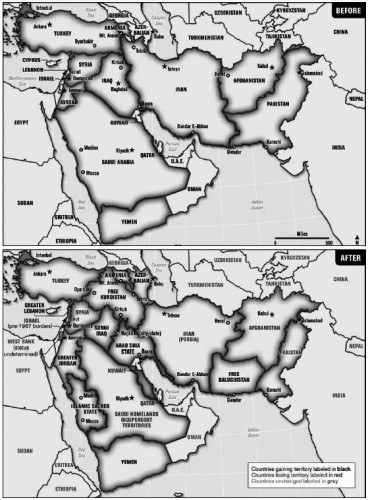
 Comme les politiciens irakiens n'avaient jamais laissé de côté leurs différences sectaires pour former un exécutif viable qui imposerait son autorité sur tout le territoire, on devinait bien que cette incursion du calife «fantastique» pourrait avoir des conséquences graves et dévastatrices sur les institutions si fragiles du pays. On sentait bien aussi que l'Irak serait de nouveau bombardé mais on n'imaginait pas que les Etats-Unis feraient si vite. Le plan Al-Baghadi était donc sans doute classé comme une opération d'urgence avant de quitter l'Afghanistan. Alors, on livra en appât aux pseudos journalistes experts la métaphore du califat. On vit alors apparaître dans les colonnes des journaux l'historique du califat : un titre qui datait du VIIème siècle, supprimé par Kemal Atatürk en 1924, après le démantèlement de l'Empire ottoman et qui ne conservait qu'une valeur religieuse puisqu'en 1923, on avait créé la République de Turquie.
Comme les politiciens irakiens n'avaient jamais laissé de côté leurs différences sectaires pour former un exécutif viable qui imposerait son autorité sur tout le territoire, on devinait bien que cette incursion du calife «fantastique» pourrait avoir des conséquences graves et dévastatrices sur les institutions si fragiles du pays. On sentait bien aussi que l'Irak serait de nouveau bombardé mais on n'imaginait pas que les Etats-Unis feraient si vite. Le plan Al-Baghadi était donc sans doute classé comme une opération d'urgence avant de quitter l'Afghanistan. Alors, on livra en appât aux pseudos journalistes experts la métaphore du califat. On vit alors apparaître dans les colonnes des journaux l'historique du califat : un titre qui datait du VIIème siècle, supprimé par Kemal Atatürk en 1924, après le démantèlement de l'Empire ottoman et qui ne conservait qu'une valeur religieuse puisqu'en 1923, on avait créé la République de Turquie.  Le porte-parole du mufti d'Egypte (un des principaux leaders spirituels sunnites) a déclaré cet été que «le califat est une illusion». «A peine, dit-il, une réponse crédible au chaos irakien». D'autres chefs religieux sunnites ont souligné l'aspect «délirant» de la proposition car«on ne saurait former un Etat par le pillage, le sabotage et les bombardement». Un député irakien est convaincu de son côté que c'est en réalité un projet bien pensé, calculé, réfléchi, un projet même rationnel, trop rationnel même pour être vraiment oriental ! En fait, l'Irak ne doit jamais se relever pour l'équilibre du monde.
Le porte-parole du mufti d'Egypte (un des principaux leaders spirituels sunnites) a déclaré cet été que «le califat est une illusion». «A peine, dit-il, une réponse crédible au chaos irakien». D'autres chefs religieux sunnites ont souligné l'aspect «délirant» de la proposition car«on ne saurait former un Etat par le pillage, le sabotage et les bombardement». Un député irakien est convaincu de son côté que c'est en réalité un projet bien pensé, calculé, réfléchi, un projet même rationnel, trop rationnel même pour être vraiment oriental ! En fait, l'Irak ne doit jamais se relever pour l'équilibre du monde. 